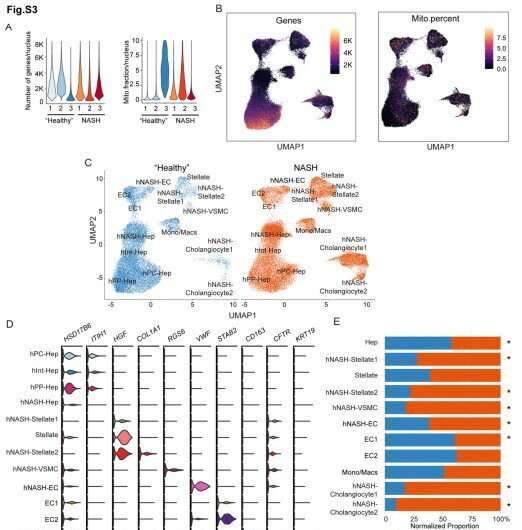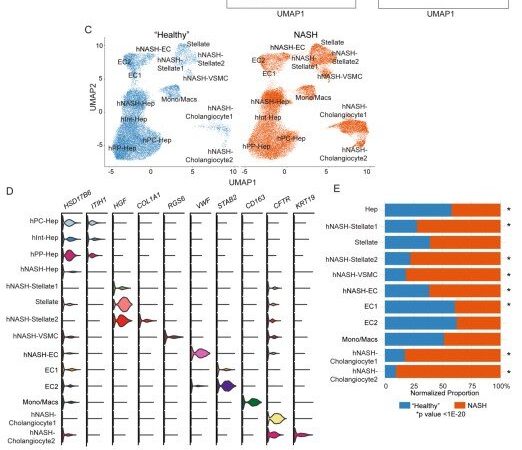
A team of medical scientists working at the University of Pennsylvania’s Perelman School of Medicine has used single-nucleus RNA sequencing to isolate those mouse liver cells cells that push the progression of nonalcoholic fatty liver disease (NAFLD) into non-alcoholic steatohepatitis (NASH), where fibroids develop, which typically means permanent damage. Their paper is published in the journal Science Translational Medicine.
Prior research has shown that eating habits in the U.S. have led to what is now known as the American-lifestyle-induced obesity syndrome (ALIOS). One of its byproducts is liver disease—specifically, NAFLD, progressing to NASH. Medical scientists know that diet changes could reduce the risk of such diseases but consumers have thus far refused to make the changes needed. Many in the field have begun to look for other ways to reduce the risk. Such efforts have included work to determine which cells in the liver are actively involved in the progression of liver disease. In this new effort, the team in Pennsylvania has found some of them.
To track down those liver cells involved in the progression of NAFLD, the researchers generated single-nucleus profiles for over 28,000 mouse liver cells, some from mice fed a normal diet and some from a diet based on ALIOS. They then compared profiles looking at chromatin, transcriptome and transcription factor changes. They were able to identify a group of hepatocytes that expressed an enzyme called Ephrin type B receptor 2 (EphB2), which, they note, is not usually active in liver cells.
Taking a closer look at how it behaved in the mice, the team found that it became activated by notch signaling in other related cells. And that led to inflammation, a hallmark of NAFLD. The group then looked at human liver cells from patients with progressing NAFLD and found excess EphB2, as well. They conclude that those cells producing EphB2 can be associated with progressing NAFLD and that therapies designed to reduce production of EphB2 might therefore help to reduce the risk of developing the disease.
More information:
Yang Xiao et al, Hepatocytes demarcated by EphB2 contribute to the progression of nonalcoholic steatohepatitis, Science Translational Medicine (2023). DOI: 10.1126/scitranslmed.adc9653
Journal information:
Science Translational Medicine
Source: Read Full Article
